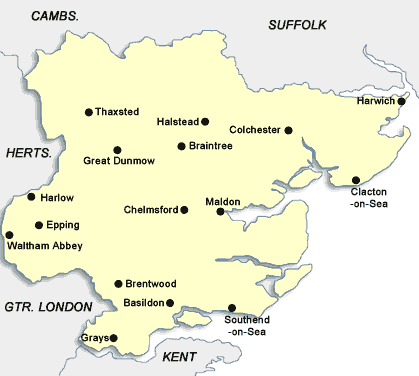Share it
 The case of A v Essex County Council is an appeal against a decision of the Court Appeal handed down nearly two years ago ([2008] EWCA Civ 364) in a claim brought on behalf of a severely disabled child, anonymised as A, for damages for breach of his human rights. Field J had given summary judgment for the defendants ([2007] EWHC 1652 (QB)). The claimant’s case is that he was shut out of the state system for 18 or 19 months and that this was inhuman or degrading treatment and an unjustified disruption of his private and family life, as well as to discrimination in the enjoyment of the right under Article 2 of the First Protocol (“A2P1”). The appeal will be heard by Lord Phillips, Baroness Hale, Lord Brown, Lord Kerr and Lord Clarke on 24 and 25 March 2010. The National Autistic Society have been given permission to intervene.
The case of A v Essex County Council is an appeal against a decision of the Court Appeal handed down nearly two years ago ([2008] EWCA Civ 364) in a claim brought on behalf of a severely disabled child, anonymised as A, for damages for breach of his human rights. Field J had given summary judgment for the defendants ([2007] EWHC 1652 (QB)). The claimant’s case is that he was shut out of the state system for 18 or 19 months and that this was inhuman or degrading treatment and an unjustified disruption of his private and family life, as well as to discrimination in the enjoyment of the right under Article 2 of the First Protocol (“A2P1”). The appeal will be heard by Lord Phillips, Baroness Hale, Lord Brown, Lord Kerr and Lord Clarke on 24 and 25 March 2010. The National Autistic Society have been given permission to intervene.
As Field J summarised the position, “A is severely autistic, suffers from epilepsy, has severe learning difficulties and is doubly incontinent. At all material times his behaviour was extremely challenging. He self-harmed and wore arm splints and a helmet during the day to protect his arms and skull. Despite medication he had 10-15 short epileptic fits a day” ([10]). For seven years he attended L S School, a Community Special Day School for children with severe learning difficulties. His Statement of Special Educational Needs named this school as an appropriate placement.
However, in January 2002 his parents were notified that he should be removed from the school and he was kept at home pending a medical assessment because his propensity for violence constituted a danger to other pupils and staff. He was not assessed until September 2002. He was eventually offered a place at another school in February 2003 and did not take it up until July 2003.
The claimant contended that the “right to education” meant at least entitlement to accessible and appropriate provision including support for any special educational needs. It was argued that where a child has a Statement of Special Educational Needs education could not be accessible unless the support set out in that Statement is included. As a result, a claim was made for a breach of A1P2.
This argument was rejected by judge and the Court of Appeal. The Court of Appeal decided that the claim for breach of A1P2 had no prospect of succeeding in the light of the decision of the House of Lords in Ali v Lord Grey School ([2006] 2 AC 363) that this provision only confers a right of access to such system of education as each member state provides. A breach must involved a denial of effective access to the educational facilities provided or of a basic minimum of education ([13] – [15]). A was a child with needs so profound that it took the system a considerable time to adjust – but it did not break down or abandon him.
The claim of a breach of A1P2 taken with Article 14 was also dismissed. Sedley LJ said
“It is contended that it was because of his disability that A was denied access to the education system. Because a formal breach of the substantive article is not a requisite of art 14, this argument does not necessarily fall with the case under A2P1. It falls, in my judgment, because there is no evidence whatever of inappropriate discrimination. I put it this way because unlawful discrimination can take the form of treating different cases alike. To have treated A like any other child would have been entirely wrong. It was right and necessary to treat him differently from other children and in that sense to discriminate, albeit in his favour and not against him” [17]
The Court went on to hold that neither Article 3 nor Article 8 were engaged ([20] – [23]).
A’s claim is supported by the Children’s Legal Centre which has argued that the case is of enormous importance to vulnerable children and their parents and carers.


1 comment